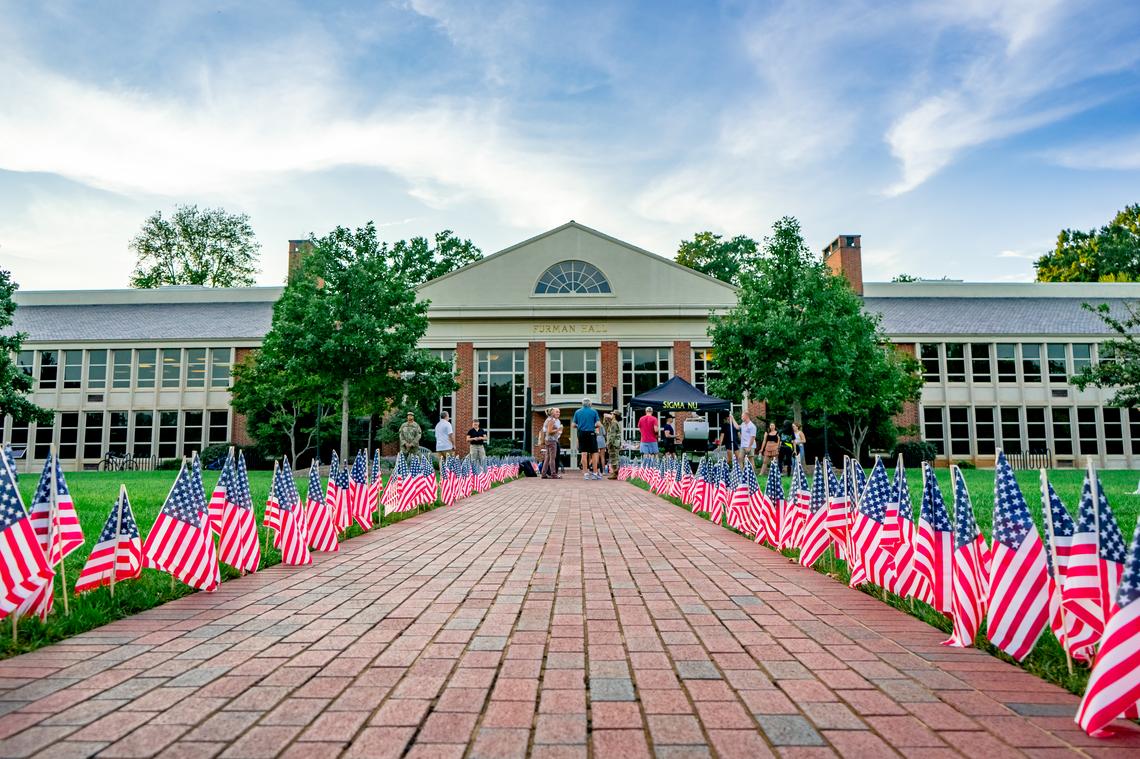Recently, Americans paid tribute to one of the most devastating tragedies in the nation’s memory — the attacks of September 11, 2001. Representing the deadliest terrorist attack on American soil – as well as in global history – it’s an event that deserves solemn consideration. Of the nearly 3,000 who lost their lives, over 2,000 were civilians, 343 were NYC firefighters, 71 were law enforcement officers, and 55 were military personnel. Suffice it to say, any memorial commemorating its victims should be sober, respectful, and most of all, thoughtful.
This year, as our nation reckoned with the 21st anniversary of the tragedy, memorials to the victims across the country accomplished just that. At the Ground Zero ceremony in New York, family members read the names of victims aloud, speeches from leaders urged us to reflect on the lives lost, and moments of silence were held for contemplation and respect.
In this same spirit, the Furman Conservative Society began planting the first of 2,977 flags, one for each victim. Food was provided by the Furman Grill Club. Though the event was without a doubt well-intentioned, we should ask for more from a memorial dedicated to an event of this gravity. There should be a notable difference between a Fourth of July celebration and a remembrance of the deadliest terrorist attack in global history.
For a tribute dedicated not only to service members but also to the civilian loss of life, a scaled-down American flag is an ill-fitting symbol, giving a patriotic sentiment to what should solely be a confrontation with grief. Yes, most of the lost were Americans, but they were not just Americans. They were mothers and fathers, daughters and sons; citizens, no doubt, but also so much more. The deaths of 9/11 were not casualties of war — an occasion for which the inclusion of flags would have been more appropriate. They were victims of a senseless act of terror.
They died on routine flights or while chatting with coworkers from their desks. Some died serving their community as they would have on any other day, but were subjected to violence on a scale they never could have anticipated. The victims of 9/11 were not battlefield losses; thus, they should not be included in a patriotic narrative.
The issue is not with the American flag, nor is it with the tribute; it is the way in which those things were combined. The Conservative Society’s effort to honor the victims of 9/11 is commendable, but we need to ask ourselves if this is the best we can do. If we are genuinely interested in honoring their memories, as we claim to be, they are worth more than insufficient symbolism.
In the future, we could have a vigil in which we read the victims’ names aloud as they do at Ground Zero; we could host a panel of survivors and listen to their stories; or we could organize a stair climb to honor the fallen firefighters. However we choose to commemorate them moving forward, any tribute must be founded on a thoughtful and solemn recognition of reality. The way in which we remember is just as important as the act of remembrance itself.









































